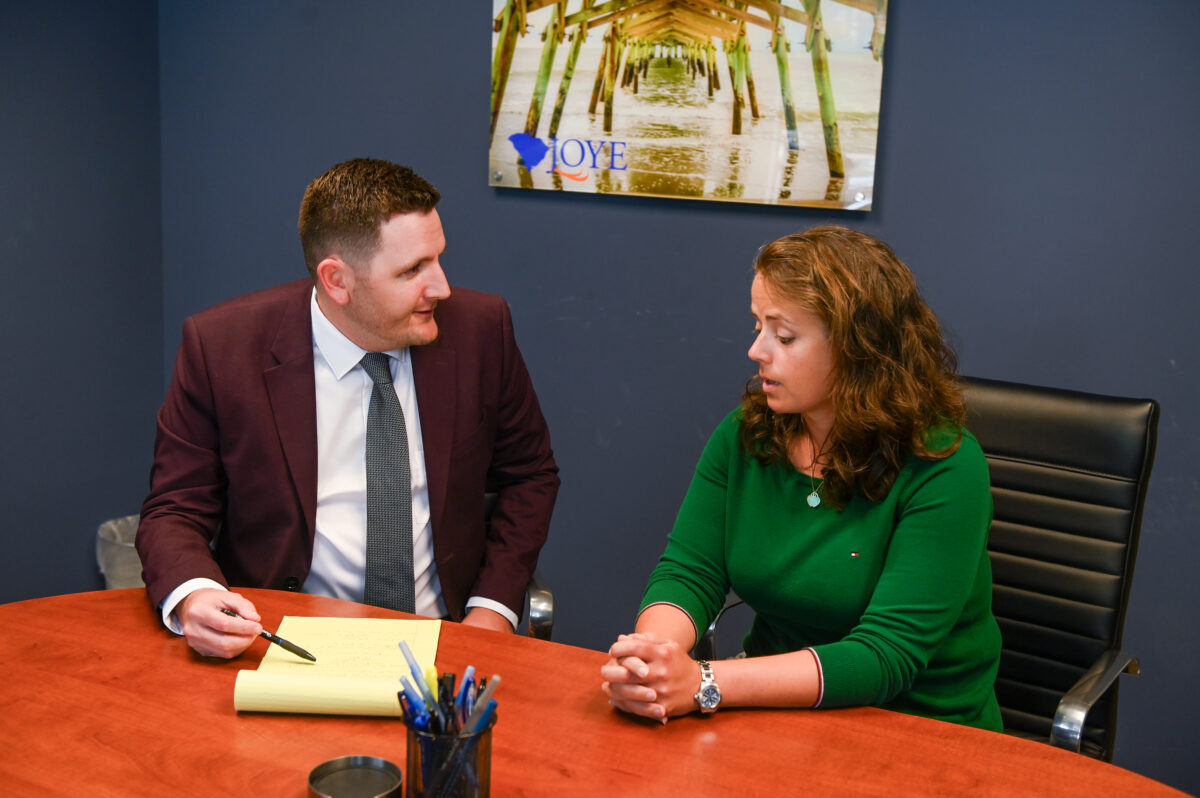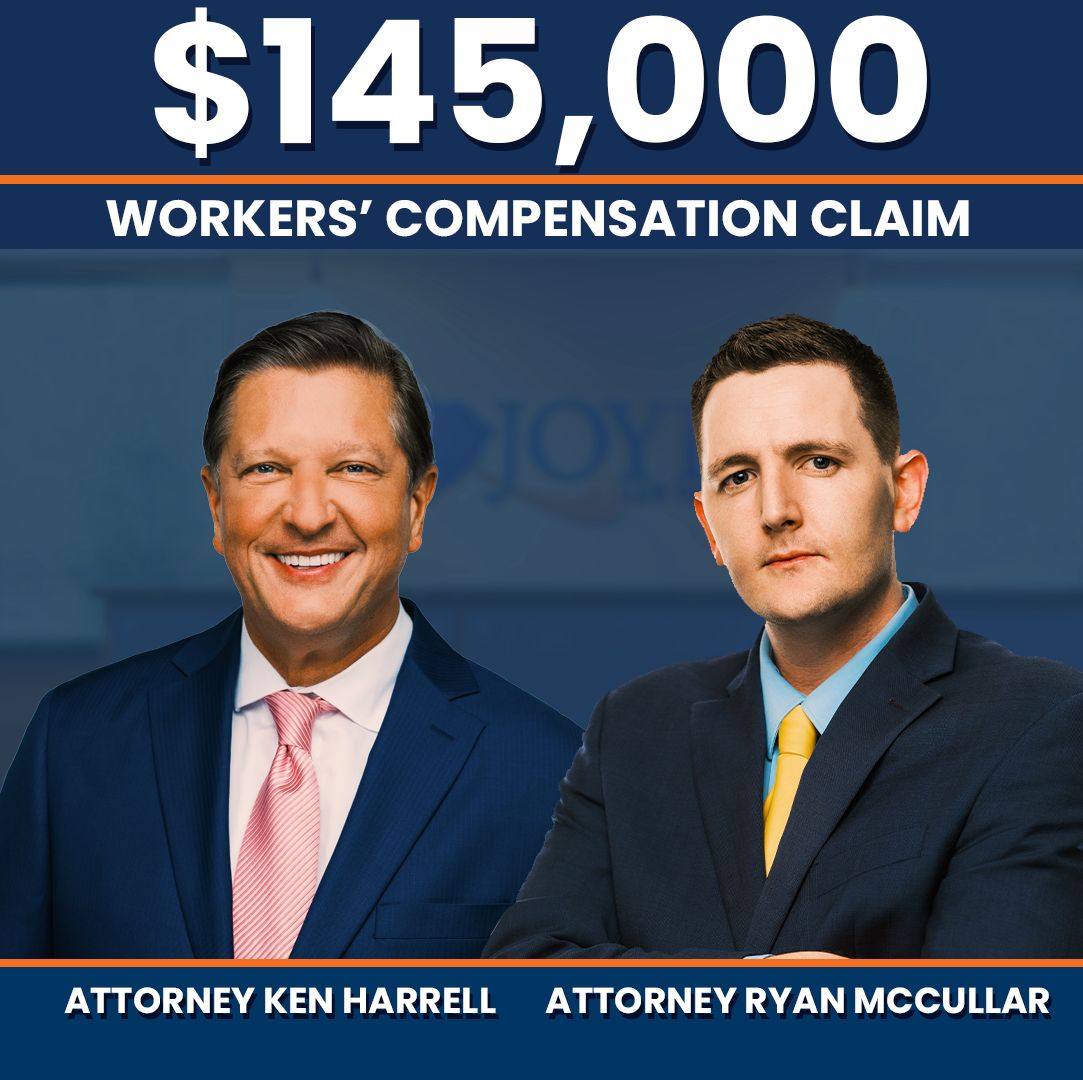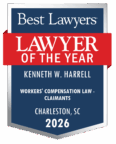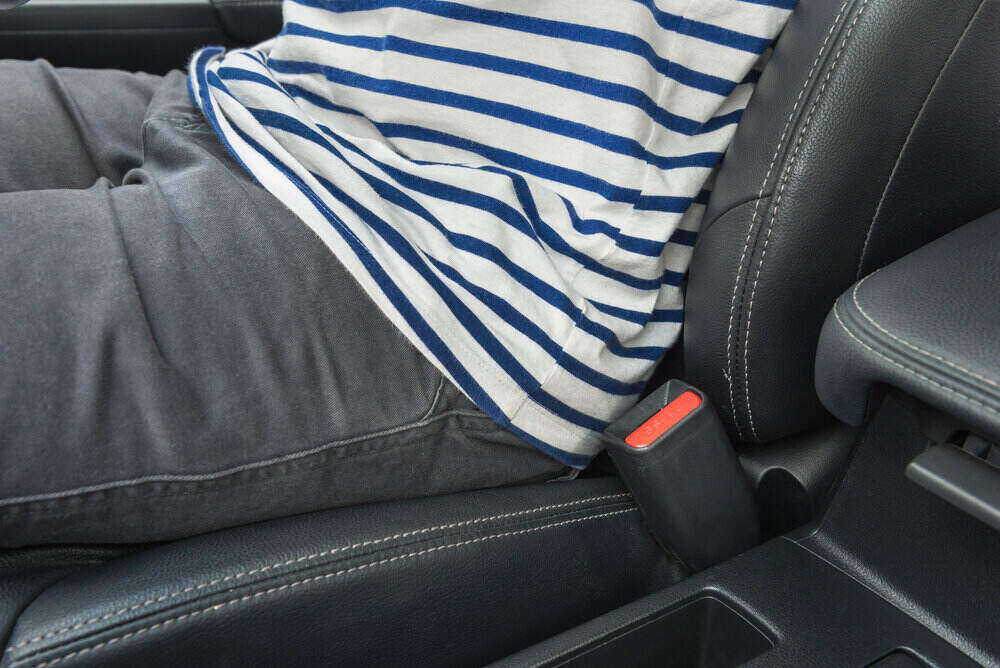
Wearing a seat belt is one of the simplest and most effective ways to protect yourself and your passengers in the event of a car crash. In South Carolina, seat belt safety is taken seriously, with mandatory seat belt laws designed to keep drivers and passengers safe. Yet, every year, hundreds of lives are lost, and thousands are severely injured simply because they weren’t wearing their seat belts.
Why does using a seat belt still matter on South Carolina roads? Data from the National Highway Traffic Safety Administration proves that a properly worn lap belt and shoulder belt cut the chance of fatal injuries to front-seat passengers by roughly 45 percent and moderate-to-severe injuries by about 50 percent. These numbers mean more lives could be saved on public streets every single day. Need another reason to buckle up? Seat belt use protects your driving record and your wallet by keeping your insurance rates from climbing from expensive tickets. Even a first offense can add up quickly.
You should buckle up every time. However, just because you weren’t wearing a seat belt at the time of the crash doesn’t mean you don’t deserve compensation for your injuries.
At Joye Law Firm Injury Lawyers, our South Carolina car accident lawyers understand the impact of not wearing a seat belt and how it can affect your legal claims after an accident. If you’ve been injured in a car accident, schedule a free consultation with us to protect your rights.
Top Crash-Related Injuries That Seat Belts Help Prevent
Common crash-related injuries that safety belts help prevent or lessen include:
- Internal bleeding. Seat belts, especially when properly positioned, help prevent damage to internal organs like the liver, spleen, and kidneys by restraining the body and reducing blunt-force trauma.
- Spinal fractures. By minimizing excessive movement during impact, seat belts help protect the spine from sudden jarring or twisting, which can lead to partial or complete paralysis.
- Traumatic brain injury. Seat belts keep occupants securely in place, reducing the risk of hitting the windshield, dashboard, or side windows during a collision. This greatly lowers the chance of concussions or more severe brain trauma.
- Facial Injuries. In high-impact crashes, unbelted passengers can hit airbags, the dashboard, or other surfaces face-first. Seat belts help keep the head and upper body away from direct impact zones.
- Ejection-Related Trauma. Perhaps most critically, seat belts prevent occupants from being ejected from the vehicle, a situation that dramatically increases the likelihood of severe injury or death.
South Carolina’s Seat Belt Law
South Carolina’s seat belt law says that every driver and passenger in a motor vehicle must wear a fastened safety belt that meets federal requirements when moving on public streets or highways.
The driver is responsible for requiring every passenger 17 years old or younger to wear a safety belt or to be secured in a child restraint system. If a passenger in this age group has a driver’s license or beginner’s permit, that passenger may be ticketed separately for not wearing a seatbelt.
In 2005, South Carolina changed its seat belt law to make it easier for police to ticket people for failure to wear seat belts. Under the old law, an officer could only cite a motorist for a seat belt violation if police stopped the motorist for another violation.
Under the revised law, law enforcement officers can stop drivers if they see a driver or passenger not wearing a seat belt or secured in a child restraint system. You are subject to a fine if you violate the SC seat belt law. A seat belt violation does not result in points against an individual’s driver’s license and is not reported to insurance companies.
Specific Rules of Wearing Seat Belts for Children
According to SC Code § 56-5-6410, children face different physics in a crash, so the law emphasizes age and size-based equipment:
| Child’s Age/Size | Required Restraint System | Placement |
| Under 2 years | Rear-facing seat meeting federal standards | Rear seat |
| 2–4 years | Forward-facing seat with a harness until weight/height limit reached | Rear seat |
| 4–7 years | Booster seat used with both lap and shoulder belts | Rear seat |
| 8 years or ≥ 57 inches | Adult lap belt and shoulder belt if they fit across thighs/chest | Rear or front seat |
Additional notes:
- Drivers may be fined $150 for a child restraint violation, but the court can waive the penalty if proof of an appropriate seat is shown before the hearing.
- If all rear seats are occupied, the next safest available seat may be used.
- A physician’s written note may approve an alternative system for medical reasons.
- As of May 2025, children under 12 must wear seatbelts while riding in golf carts.
Who is NOT Required to Buckle Up Under South Carolina’s Seat-Belt Statute?
South Carolina Code §§ 56-5-6510 – 56-5-6565 waives the requirement of wearing seat belts for:
- A person who has a written medical waiver
- On-scene emergency medical or rescue workers treating a patient
- Church, day-care, or school buses
- Most public transportation vehicles, other than taxis and rideshare
- Riders in an official parade vehicle
- United States Postal carriers on delivery routes
- An extra occupant when every belt in the vehicle is already in use
- Older vehicles that left the factory without belts
Outside these exceptions, drivers and passengers who ignore seat belt usage face a fine of up to $25 per unbelted person, capped at $50 per incident.
How Does Not Wearing a Seat Belt Affect a Car Accident Claim in South Carolina?
When you bring an insurance claim or civil lawsuit after an auto accident, South Carolina seat belt law says that the other side cannot point to a seat belt violation to show comparative negligence. The statute states that failing to buckle up:
“is not negligence per se or contributory negligence, and is not admissible as evidence in a civil action.”
Because of this rule, an insurance company cannot argue that a claimant failed to “mitigate damages” by riding without a belt. Courts routinely keep this evidence out of trial. Whether you were restrained correctly or not, you still have the right to pursue compensation for medical bills, lost wages, and other losses if an at-fault driver caused the crash.
Can I Recover Compensation After a Car Crash Without a Seat Belt?
South Carolina’s seat belt law refers to the doctrine of negligence, which prevents an injured party from collecting any compensation after a car accident if he or she was primarily to blame.
Failure to wear a seat belt is not available as evidence when determining comparative negligence, a rule that allows the court to distribute blame and damages based on each individual’s share of fault.
Under comparative negligence rules, each party in a lawsuit is held liable for their responsibility for the accident.
For example, imagine you have a claim for $10,000 in damages from a collision with another vehicle. If you had zero responsibility for the accident, you would recover the full $10,000.
However, if a jury decided you were partly at fault and assigned you 20 percent of the blame for the accident because you were speeding, your compensation would decrease by that percentage.
If a South Carolina jury determined that you were 51 percent or more at fault for an accident, you would not be eligible to recover compensation.
If you do not wear a seat belt, the injuries you suffer in a crash will likely be worse than they would have been if you were protected by lap and shoulder restraints. This may prompt an insurance adjuster to balk at paying your injury claim. They can’t, however, use that against you in court.
A knowledgeable attorney can stand up for your rights and prevent an insurance adjuster from trying to shift the blame to you.
Real Case Study Example: Although a young boy had unbuckled his seatbelt just moments before a low-speed crash caused his family’s minivan to roll over, the child’s devastated family was still awarded compensation for his tragic death. The 5-year-old was ejected through a faulty rear hatch that opened during the rollover. This exposed a serious design defect in Chrysler’s liftgate latch and prompted a major recall. Despite the defense deflecting blame by claiming the child died inside the minivan from the crash and not due to the defective latch, Attorney Mark Joye uncovered evidence of negligent design and willful misconduct by Chrysler. In court, Joye held the company accountable, provided justice to the family, and secured one of the largest personal injury verdicts in South Carolina history.
What to Do If an Insurance Company Tries to Deny Your Claim Due to Lack of Seatbelt Use
If an insurance company attempts to deny or reduce your claim because you weren’t wearing a seatbelt during the accident, take the following steps:
- Don’t accept their decision: South Carolina law prohibits using seatbelt non-use as evidence in civil actions. The insurance company’s stance may lack a legal foundation.
- Get it in writing: Ask the insurance company to provide their reasoning in writing. This documentation is valuable when challenging their decision.
- Don’t provide recorded statements: Avoid giving recorded statements about the accident or your seatbelt use without consulting an attorney first.
- Gather evidence: Collect all relevant information about the accident, including police reports, witness statements, and medical records.
- Consult an experienced car accident attorney: A knowledgeable lawyer helps you understand your rights, communicates with the insurance company on your behalf, and fights for fair compensation.
- Stay persistent: Don’t give up if your initial claim is denied. Many valid claims are initially rejected but are later approved after proper legal intervention.
Insurance companies use every imaginable tactic to minimize payouts. Being informed and seeking professional legal help protects your rights and increases your chances of receiving fair compensation, regardless of whether you were wearing a seatbelt at the time of the accident.
Common Myths About Seat Belt Usage 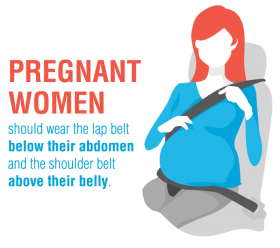
Seat belts are a simple and effective way to protect yourself in a car accident, yet many myths persist about their necessity and effectiveness. Let’s debunk some of the most common misconceptions:
1. “I’m a good driver; I don’t need to wear a seat belt.”
Even the best drivers cannot predict reckless driving by others, sudden weather changes, or unexpected road hazards. Wearing seat belts reduces the risk of severe injuries in car accidents, even if you’re not at fault.
2. “Seat belts are more dangerous in a crash; they can trap you.”
This myth is rooted in rare instances where seat belts became jammed. The chance of being trapped is far less than the chance of being seriously injured or killed when not wearing a seat belt.
3. “I don’t need to wear a seat belt in the back seat.”
Many people believe the back seat is safer, but passengers in the back are just as vulnerable during a car crash. In fact, back-seat passengers who do not wear seat belts are more likely to injure front-seat occupants during a crash.
4. “I’m just going around the corner or on a short trip.”
Most car accidents happen within 25 miles of home and at speeds under 40 mph. Proper security is essential, no matter how short the journey.
5. “Airbags will protect me, so I don’t need a seat belt.”
Front-seat airbags are designed to work with seat belts, not replace them. Without a seat belt, the force of an airbag can cause serious injury during deployment. A seat belt helps position you properly for the airbag to be effective.
6. “I don’t have to wear a seat belt; it’s not the law.”
In South Carolina, seat belt usage is mandatory for all drivers and passengers, including those in the back seat. Law enforcement officers can pull you over for not wearing a seat belt, resulting in seat belt violations and fines.
7. “I’m pregnant, and wearing a seat belt could hurt my baby.”
On the contrary, pregnant women are encouraged to wear seat belts properly, with the lap belt below the belly and the shoulder belt across the chest. This prevents severe injuries to both mother and child in the event of an accident.
8. “Wearing a seat belt in public transportation vehicles is not necessary.”
While public transportation vehicles may not always require seat belts, it’s always safer to wear one if available. Many serious injuries can be prevented in case of sudden stops or collisions.
9. “I can brace myself in a crash.”
Crash forces exceed what human muscles can resist, even at low speeds.
10. “Seat belts aren’t necessary for older cars without airbags.”
Seat belts were designed to prevent ejection and reduce impact injuries long before airbags became standard. Their role in saving lives is independent of other safety features.
Protecting Your Rights After an Accident
If you or a loved one has been injured in a car accident in South Carolina, it’s important to understand your rights. Whether or not you wear a seat belt, you may be entitled to compensation for your injuries, medical expenses, and lost wages. At Joye Law Firm Injury Lawyers, our car accident lawyers are ready to help you in any auto accident-related cases.
We understand South Carolina’s unique seat belt laws and how they impact insurance claims and lawsuits. Schedule a consultation today to learn how we can help you secure the compensation you deserve.
Seatbelt Safety
Can I be pulled over just for not wearing a seat belt in South Carolina?
Yes. South Carolina is a primary enforcement state, which means law enforcement officers can stop and ticket you solely for not wearing a seatbelt.
Do passengers in Uber or Lyft vehicles need to wear seat belts?
Yes. All passengers, including those in rideshare vehicles such as Uber and Lyft, are required to wear seatbelts under South Carolina law. There are no exemptions for hired or private transport services.
Are seat belts required on school buses in South Carolina?
No. Due to their unique design, South Carolina law does not require standard school buses to have seat belts. However, newer or smaller buses might come equipped with them.
Are seat belt laws different for pickup trucks or commercial vehicles?
No. The seat belt law applies to all private and commercial vehicles, including pickup trucks. Everyone in the vehicle, regardless of the type, must wear a seat belt unless exempt.





